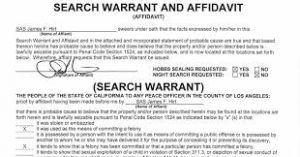One of the many protections afforded by the United States Constitution is the Fourth Amendment right against unreasonable searches and seizures. Pursuant to the Fourth Amendment, a defendant cannot be searched without a warrant absent consent. While there are exceptions to this rule, the state bears the burden of proving that an exception applies.
In People v. Pratt, the Appellate Court of Illinois, Fifth District, held that a blood draw taken without a warrant when the defendant was unconscious violated his Fourth Amendment rights. If you are charged with a DUI, you should consult an experienced Illinois DUI attorney to assess what evidence the state is permitted to use against you.
Facts Surrounding the Defendant’s Chemical Testing
Allegedly, the defendant was involved in a car accident in which his passenger was killed. He was transported to a hospital for treatment but was not placed under arrest. A police officer that investigated the accident directed medical professionals to draw the defendant’s blood while he was unconscious so that chemical testing could be performed. Based on the results of the chemical testing, the defendant was charged with aggravated DUI. Prior to his trial, he filed a motion to suppress the test results, on the grounds that the blood draw constituted an unreasonable warrantless search that violated his Fourth Amendment rights. The trial court granted his motion. The state then appealed; on appeal, the appellate court affirmed.
 Illinois DUI Lawyer Blawg
Illinois DUI Lawyer Blawg


